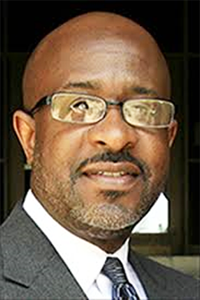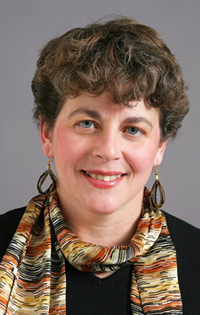|
“Learning as
leading”
In response to national,
regional and local conversations about the achievement gap
between students of color and white students in both K-12
and postsecondary education, coupled with our personal and
professional interests, we’ve collaborated in hopes of
shedding local light on the black-white achievement gap
through a series of community conversations. Simply stated,
we are “flipping the script” and using a tried and tested
approach where we go to the community for answers rather
than, as academics, we give the answers.
The group uses a process
called “popular education” by some, “learning as leading” by
others, and “group-centered leadership” or “collective
leadership” by yet others. The most important aspects of the
process is that every person has an equal voice and
valued knowledge, and the group mutually
determines issues, investigates them, and determines
appropriate actions rather than acting on some predetermined
goal or objective.
One early contributor of
the approach is Antonio Gramsci, an Italian who fought
against fascism (an oppressive and authoritative form of
government) in the 1920s and ‘30s. He coined the term
“organic intellectual” to emphasize the idea that all
people, no matter what their vocation, are intellectuals:
people from all walks of life contemplate, research and act
based on their insights. Gramsci emphasized that for society
and its institutions, including schools, to survive and
thrive, everyone’s contributions to understanding and acting
upon the world must be valued.
|

Willie McKether

Lynne Hamer |
|
Another important 20th
century contributor was civil rights activist and leader
Ella Baker, known best for her leadership role with the
Student Nonviolent Coordinating Committee, or SNCC. Authors
Stephen Preskill and Stephen Brookfield, who wrote the
useful guide Learning as a Way of Leading (2009),
noted that Baker, a leader in SNCC as well as the NAACP
during the 1954 to 1968 Civil Rights movement, was “the
movement’s most influential theorist of, and practitioner
in, collective leadership, or what she often referred to as
group-centered leadership”.
Baker called for people
throughout society to be involved in making decisions that
affected their lives, instead of being overly influenced and
controlled by experts and professionals. According to
Preskill and Brookfield, Baker believed collective
leadership involved building a community where all are
viewed as equals, where each voice is considered unique and
essential, and where people work together to discover
mutually agreed-upon goals. It is exactly in this spirit
that conversations have been developing and will continue.
In our first four
conversations, participants have come from many walks of
life, including teachers and school administrators, parents
and grandparents, ministers, city government workers,
community organizers and children’s advocates, police,
security and probation officers, and students ranging in age
from upper elementary through graduate school. One teacher
who came to the first conversation has brought her fellow
teachers as well as parents of children in her classroom, as
well as former students, to subsequent conversations.
The group has identified
five main topics of concern, and through research and
sharing views and experiences, are now continuing
conversations to increase our common understanding
of them as well as strategies for addressing them. The
identified issues are: cultural competence, community
involvement in schools, parent involvement in schools, the
disproportionate suspension and expulsion of students of
color, and the question of government control in schools.
Further columns on “Community Conversations” will report on
the research, discussion, and conclusions of the group
surrounding these topics as well as other issues that may
arise.
We whole-heartedly believe
that in order for society to thrive, individuals must to
come together to discuss freely matters of common concern.
In the last three decades, such gatherings have decreased,
as documented by sociologist Robert Putnam in the popular
book, Bowling Alone. “Community Conversations” is
intended to create a free and democratic space—a place where
people can try out ideas and collectively select the ones
most important to act on—as well as to develop smart ways to
act.
Such ideas develop over
time, as a group gets to know each other, and builds common
understanding together. Patience and persistence matter.
As one participant wrote at the end of the third
conversation, “Keep going and let the group lead the
journey. This is not going to be solved in an eight-week
journey. This is an Odyssey.”
The authors of this column are both faculty at the
University of Toledo and facilitate the group “Community
Conversations for School Success.” Willie McKether is
associate dean in the College of Language, Literature and
Social Science and associate professor of
Sociology/Anthropology, and Lynne Hamer is professor of
Educational Foundations and Leadership and currently directs
UT@TPS. Everyone is welcome to join in the Community
Conversations, which take place alternate Mondays, 6:30-8:00
pm, at the Kent Branch. The next conversation will take
place November 24.
|